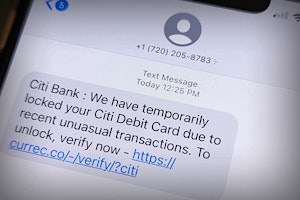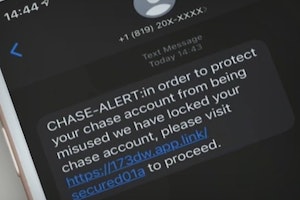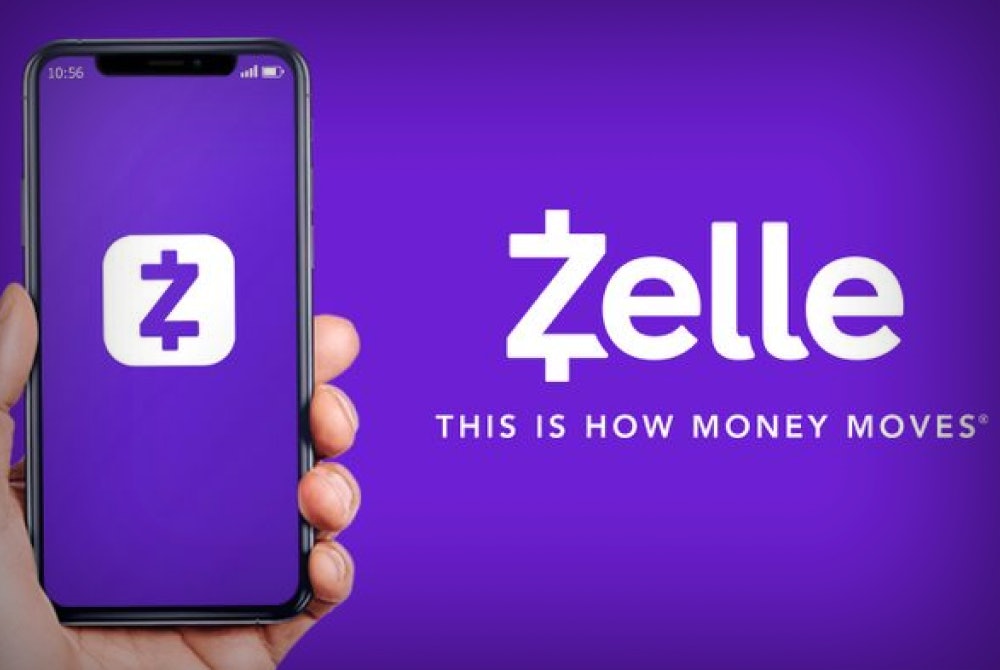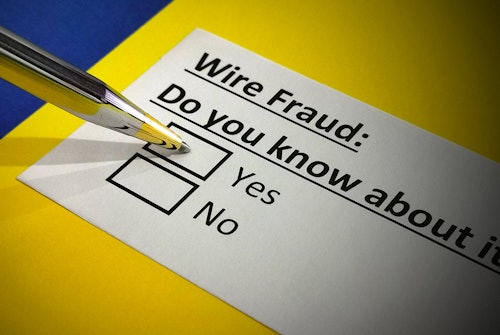Wire Fraud In Depth
- Red Flags of Wire Fraud
- Common Types of Wire Fraud
- How to Beat Wire Fraud
- How to Recover from Wire Fraud
Historically wire fraud schemes relied on the telephone, with scammers limited by the number of calls they could place to try to hook their victims. Today, with the proliferation of the internet, fraudsters can reach many more people through social media with their fake stories of loss, love, and instant wealth.
The definition of wire fraud today is quite broad. According to the U.S. Department of Justice wire fraud statutes, these elements define wire fraud:
- The scammer took part in or created a scheme to defraud another person out of their money or property.
- The scammer knew they were participating in a fraud scheme.
- The scammer used wire communications in the scheme.
This means a scammer could contact you through email, text message, or phone to commit wire fraud.
Red Flags of Wire Fraud
The best way to prevent yourself from falling victim to wire fraud is to make yourself aware of the red flags and constantly be on alert for scams. Here are some indicators you may be dealing with a scammer:
- Someone asks you to transfer money on their behalf.
- Someone you don't know asks for your online banking or credit card information.
- You get a notification that you won a prize from a contest or sweepstakes you didn't enter, and you have to pay a fee to get the money.
- Someone claims they will give you some of their money if you help them access it by paying a fee to release it.
- There are grammar and spelling errors in the messages you received.
- You are promised high returns on an investment that seems too good to be true.
- You are told to act with urgency.
- You receive an email from someone you don't know with a suspicious link or an attachment.
Common Types of Wire Fraud
Considering that the definition of wire fraud scams is relatively broad, many types of scams fall into this category. Most scams that involve the internet, email, phone calls, or text messages and the loss of money are wire fraud scams.
Phishing
The most common type of wire fraud scam is phishing. In these scams, a scammer masquerading as a government official, tech support technician, or another person, contacts you by email, text message, or phone call.
They will commonly impersonate a government official or well-known brand and ask you for sensitive information, such as your bank account details and Social Security number (SSN). They will then use this information to steal your identity.
Money Transfer Scams
Money transfer scams have been around for years. Possibly the most common version of this is the Nigerian prince scam, where the scammer poses as a Nigerian prince. But since people know to be on the lookout for "Nigerian princes" offering them money by now, scammers have since masqueraded as different characters.
The gist of the scam goes like this. The scammer claims to have a large sum of money they cannot access without your financial help to "release" the money. If you transfer the money, the scammer will say you will get a percentage of the money for your help, but that never happens, and the scammer takes off with your money.
Lottery and Prize Scams
In a lottery or prize scam, you will receive an email claiming that you won the lottery, sweepstakes, or other contest. To claim your winnings, you will first have to pay a fee. Unfortunately, the contest isn't real, and the scammer will take your money and disappear.
Investment Scams
In an investment scam, the scammer will claim they have an amazing investment opportunity that will double, triple, or quadruple your money. The investment could be stocks, bonds, real estate, cryptocurrency, or several other investment types. These scams are even common on Cash App, where scammers promise to "flip your money."
The scammer may give you fake information about a real investment to make it look better or create a fictional one on the spot. Regardless of if they use an actual example or a fake one, their main goal is to steal your money.
Catfishing
Catfishing is when someone sets up a fake profile to win your trust and ultimately gets you to send them money. These scams are often associated with online dating and target vulnerable people looking for companionship.
Once the scammer has won your trust, they start asking for money, often for small amounts initially, then gradually increase it over time.
How to Beat Wire Fraud
Here are some tips to help you beat wire fraud and keep your identity, data, and money safe:
- Never send money to someone you don't know.
- Don't click on links in emails if you are unsure of the sender.
- Never download attachments from suspicious emails or those from unknown senders.
- Never reply to an email if the sender asks for personal information or money.
- Hover over the sender's email address or click it to reveal the actual source. (Scammers may use real company names to trick you into trusting the email.)
- Only invest in businesses you can verify and do so through a legitimate broker.
- Keep your computer up to date and regularly scan it for malware and viruses.
- Always visit a known website manually using your browser instead of clicking links in emails.
- If an investment or prize seems too good to be true, know that it most likely is.
How to Recover from Wire Fraud
If you have fallen victim to wire fraud, you need to act quickly to prevent further loss of money or data. Depending on the type of wire fraud you have fallen for, all or some of these steps will help you recover from the damage and even possibly help the authorities catch the scammer.
Report Wire Fraud to the Authorities
One thing you will want to do is report the scam to the authorities. Ensure you have all the information regarding the fraud available when you contact them, so they have everything they need to catch the scammer. Here are some places you should report the scam:
- The FBI Internet Crime Complaint Center
- The Federal Trade Commission (FTC)
- Your state's Attorney General's office
- Your local police department
You will also want to contact the shipping company involved if it was a package delivery scam. If you were contacted via a social media account, you should also report the fraud to the website/platform.
Contact Your Financial Institution
If you gave the scammer money or your bank/credit card information, you will also want to contact your financial institution. If you sent money to a scammer, sometimes you can get the charges reversed depending on the scam. Many credit and debit card providers offer protection against fraud and will cancel all fraudulent charges on your account.
Usually, it's as simple as monitoring your bank accounts and then disputing or reporting unknown transactions to your bank.
Protect Your Devices
If the scammer had you download an application or you clicked on an attachment, you need to make sure that you disconnect the affected device from the internet as soon as possible. Once you have no internet connection, run anti-virus and anti-malware software and let them remove any harmful software. Also, check your browser for extensions you didn't install and uninstall them.
Change Your Passwords
If you entered any credentials on a phishing site or any malware is found on your computer, you will want to change the passwords on your internet accounts using another device. Start with any credentials you used on the phishing site and update your most important passwords, like those for email accounts, government sites, and financial institutions.
Contact the Credit Bureaus
If you entered any personal information like your Social Security number on a phishing site or gave it to the scammer, place a fraud alert on your credit report. You also have the option of freezing your credit completely for ultimate protection.
Scams Relating to Wire Fraud

Red Flags of Fake Credit Union Emails: Prevent Phishing
Scammers have turned their phishing attempts to members or credit unions by sending out fake emails hoping to get their hands on valuable personal data.

Selling on Facebook Marketplace? Beware of Fake Venmo Emails
Scammers are sending fake Venmo emails to Facebook Marketplace sellers in an attempt to steal login information and money.

Citibank Text Message Scam: Locked Debit Card Alert Is Fake
If you've received a locked debit card text message from Citibank, it's likely a scam. Don't click on the link and delete the text message.

Real Chase Fraud Text Alert or Scam Message?
If you receive a text message from Chase Bank, don't click on any links or call the phone number listed—it could be a scam designed to steal your information and money.

Amex Fraud Text Alert Scams: Spotting a Fraud
If you receive a text message from American Express, don't click on any links or call the phone number listed—it could be a scam designed to steal your information and money.

Fake Verizon Text Messages: How to Avoid a Scam
Verizon may send you text messages from time to time with account updates or data usage alerts, but beware—most of these aren't really from Verizon but scammers.

Get an Unexpected Delivery Alert? It May be a UPS Text Scam
Scammers are using SMS messages to send fake alerts to customers regarding a package delivery. Here's what to know about this scam.

Venmo Text Scam: Don't Fall For These Fake Messages
If you received a text from Venmo with a link to verify a payment or deposit, or are asked to complete a survey in exchange for money, it may be a scam.

Truist Text Alert: How to Identify a Real Text from a Scam
You may think that that Truist have sent you a text alert about your account. Here's how to check if it is actually a scam.

Wait! That Walmart Giveaway Text May be a Scam!
Fake texts are being sent to consumers claiming a hefty sum is waiting for them on a Walmart gift card, but falling for this scam puts you at risk of identity theft.
Guides Relating to Wire Fraud

15 Ways to Protect Your Bank Account from Scammers
Keeping your bank account and money secure isn't as simple as keeping your PIN a secret. Hackers and scammers find numerous ways to gain access to your funds.

Hidden Tinder Swindler Red Flags - 6 Dead Giveaways (Did You Catch Them?)
There were tell-tale red flags of a scam all the way through the Netflix documentary, which could have helped the victims identify him as a scammer. Learn from these markers to avoid being a victim.

How To Verify Your Mortgage Escrow Agent & Prevent Scams
Mortgage escrow scams can steal the entire value of your house during a transaction. Follow these steps to ensure that you verify your escrow agent before any transfers.

How to Get Verified on TikTok
Securing that little blue checkmark can mean brand collabs, sponsorship opportunities, or protecting your unique content from impersonators.

How to Tell if Nikes Are Fakes: From Tags to the Stitching
Nike is one of the biggest brands targeted by counterfeiters and scammers - be extra careful with Nike products from non-official retailers as you could end up with a fake
News Relating to Wire Fraud

Banks May Refund More Zelle Scam Victims in 2023
Zelle scams have reached a serious volume. New reports suggest that banks are looking at new refund protections for customers in 2023.

Urgent CDC Warning: Eye Drops Linked to 3 Deaths, Loss of Vision
The CDC is warning eye drops users of a rare bacterial infection from 2 brands of eye drops. The infection is resistant to antibiotics and has resulted in the loss of vision, loss of eyeballs and the death of 3 patients.

Optus Data Breach - One of the Worst Cyberattacks in Australia
Hackers have gained access to 9.8 million customer records from Optus in Australia, exposing personal information such as driver licence, medicare and passport details.

Roe vs. Wade Overturned: Abortion Rights in Your State
Find out what the overturning of Roe vs. Wade means for abortion rights in your state.

Searches for "COVID Vaccine 5G" Hit All-Time High, But Microchips Definitely Not in Vaccine
The number of people searching for the term "COVID vaccine 5G" on Google has just hit an all-time high, but there's one way to be sure that there are no microchips.




